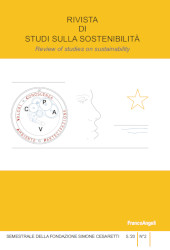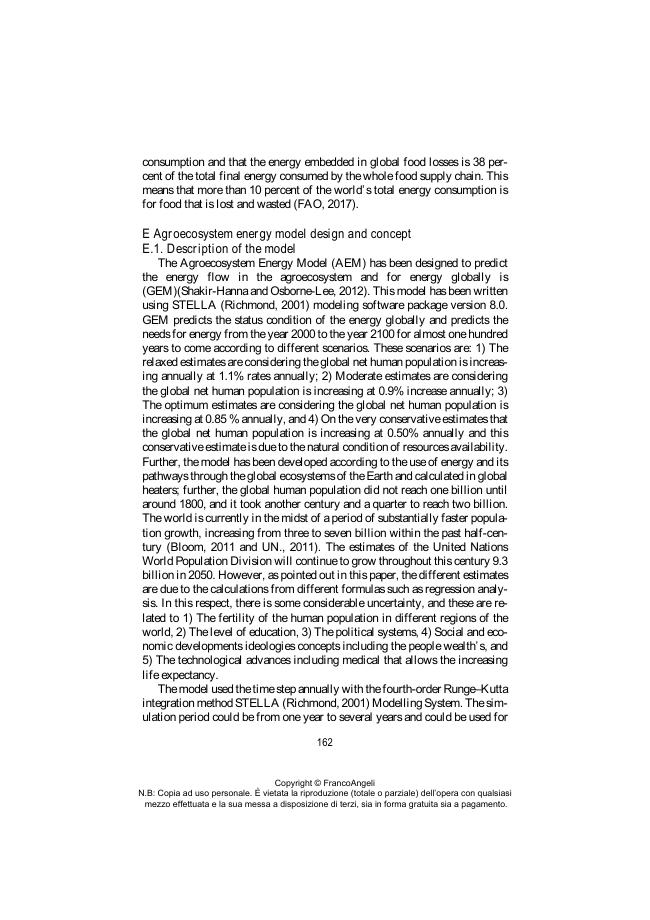Agroecosystem energy, ecological human imprint and economic sustainability : analysis and impacts
147-177 p.
Agroecosystem energy is an essential part of the natural resources available to humans for use and the continuation of Earth's life cycle. Without energy, life on this Earth will stop, and the drivers of all ecological life cycles will not be able to continue function. Energy is an essential factor that makes the working process of human survivability possible. According to World Population Clock, the current status of human population growth is in an alarming situation (i.e., 7.81 billion people and continues to increase) [World Population Clock 2020 Accessed September 20, 2020][ World Population Clock, 2020). Therefore, the ecological human imprint will impact all Earth's natural resources, in the forms of more consumptions and demands that will have impacts on the global social and economic issues globally.
Sustainability will be accomplished if we live within the concept of Nature, controlling our human population growth to reduce the impacts on natural resources' demands. In this respect, sustainability will not be achieved by economic growth alone; instead, the biosphere natural resources must replenish it and allow the natural resources to regenerate itself to support the growing human population. The present paper will assess the agroecosystem energy continuing ongoing demands and availability concerning human population growth by modeling different scenarios. According to our model, the human population growth will reach 10 billion people or more by the year 2050 at the current trend, and we may be faced with shortening the availability of energy. It is important to stress that the energy should be replenished through nontradition energy supply, and we have to concentrate on renewable energy, which we can develop to the extent of harvesting this energy in efficient ways.
An example of the needs of energy in the agroecosystem is to calculate how much enough the Earth has to support the human beings. In this regard, if each human being is in need of 2000 calories/per day on average, this means that globally the Earth has to produce more than 5694 trillion calories per year. The question is whether the Earth can create these calories to support 7.81 billion people, and we need more calories when the human population grows to be more than 7.81 bil lion people. Therefore, engineering of the Earth agroecosystem should be significant, and we have to think about how we accomplish it. Additionally, we need to sustain our environment by conserving our water resources and keeping our global climate environmentally in the best condition to maintain international economic and social standards. Further, in this paper, we will discuss the impacts of changing different parameters that affect global agroecosystem energy. [Publisher's text].
Ist Teil von
Rivista di studi sulla sostenibilità : X, 2, 2020-
Artikel aus derselben Ausgabe (einzeln erhältlich)
-
Informationen
ISSN: 2239-1959
THEMENBEREICHE
KEYWORDS
- Agroecosystem Energy Model (AEM), Sustainable Development, Human Population, Human Imprint



